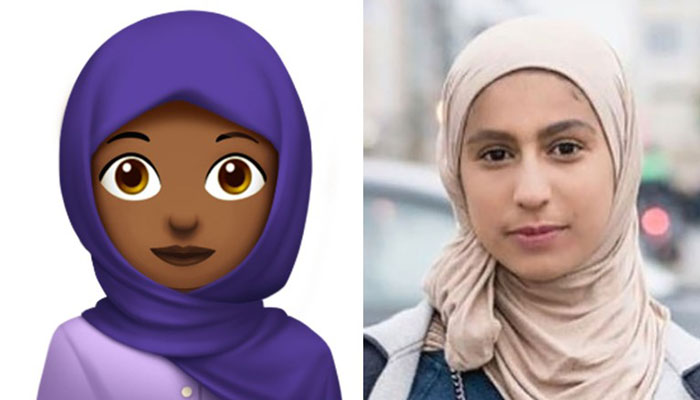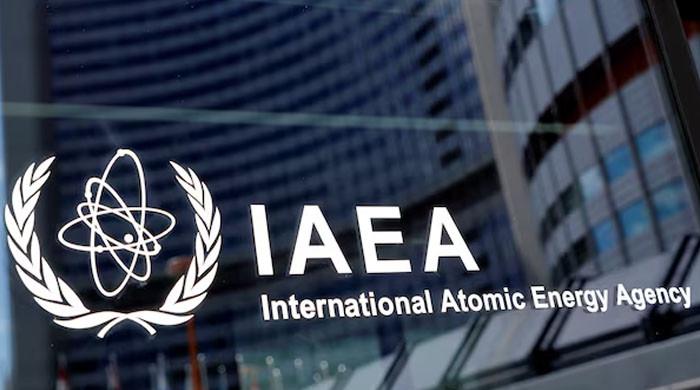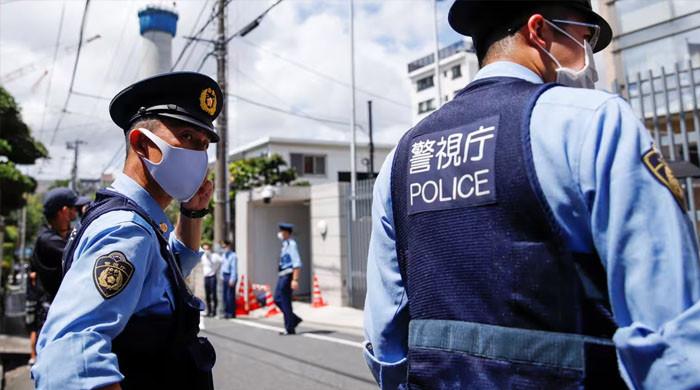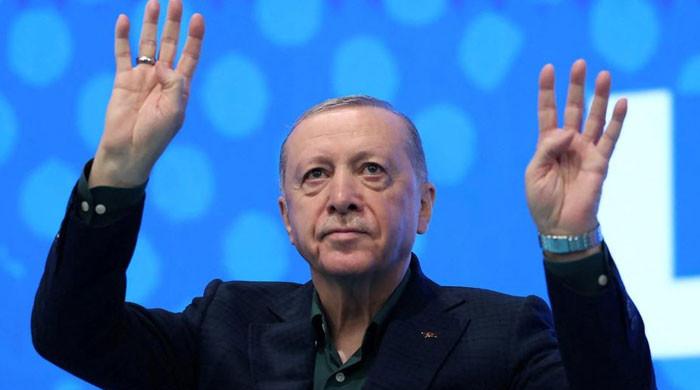Apple accepts hijab emoji idea proposed by teen 'to represent her’
She had sent the proposal last year to Unicode Consortium, a non-profit corporation that reviews and develops new emojis
July 19, 2017

The women who wear headscarves now have emojis of their own, thanks to a 16-year-old who proposed the idea to Unicode Consortium, a non-profit corporation that reviews and develops new emojis.
“I’m really happy with what it looks like,” 16-year-old Rayouf Alhumedhi, who lives in Vienna, told CNN. "I saw so many ideas, different colors and styles but I didn't know what it would finally look like. I'm just so excited because it's finally came out after all the work, all the writing."
Although the idea was proposed last year, Apple has only recently accepted it. The digital image was unveiled Monday on World Emoji Day as one from a collection of new emoji characters to be available on Apple devices later this year.
Rayouf saw the new emoji for the first time Monday night when a friend sent her a message linking to a BuzzFeed article. "I got the news just like everybody else!" she said.
When the idea popped up
She first had the idea when she and her friends were creating a group chat on WhatsApp and Rayouf had to emoji to represent her.
"The fact that there wasn't an emoji to represent me and the millions of other hijabi women across the world was baffling to me," she said. "I really had no initial idea in my mind of what it was supposed to look like, I just wanted it to be available in different skin tones – millions of women from different races do wear it."
As the idea popped in her mind, she drafted a proposal on her laptop and sent it to Unicode Consortium.
And Rayouf did not have to wait for long. She quickly gathered support. A member of the Unicode emoji subcommittee, Jennifer 8. Lee, put Rayouf in touch with Aphee Messer, who worked with the 16-year-old to design the emoji.
Although she got immense support for the idea, some people described the emoji as unnecessary and “part of patriarchal constructs that oppress women”.
And reaction on social media since Monday's announcement has been equally mixed.
"The hijab is a symbol of oppression," wrote Joeymp on Twitter, replying to a tweet by Apple Chief Executive Officer Timothy Cook. "By including it as an emoji you are showing your support for the oppression of women."
Another person tweeted about faith in humanity being restored because of such emojis being introduced.
Catering to different communities
The Unicode Consortium has dramatically increased the number of official emoji in recent years. It has approved 2,666 emoji as of June, up from 722 just two years ago. It has also made a greater effort to include diverse skin tones, flags and occupations.
Rayouf is aware that the emoji is contentious. "It will cause controversy," she said Tuesday. "Some people will try and pervert it, use the emoji in a hurtful way to perpetuate stereotypes.
"But overall, I think the Muslim community will benefit from it. Even if only in terms of representation. It's only an emoji. It's not a game changer. But it will make people happy. I hope so."
The 16-year-old hopes the image of women wearing headscarves will promote tolerance too.
“It will establish the notion that we are normal people carrying out daily routines just like you," she said last year.











